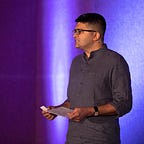Why I Discontinued Fasting for Two Days in a Week
The first time I remember taking a conscious decision to fast was in 1998. I was pursuing engineering as a third-year student at a government college in Rajasthan, living in the hostel. I had just finished reading a biography of Mahatma Gandhi by B.R. Nanda and was hugely impressed by the efficacy of fasting as a tool used by the Mahatma in his campaigns to challenge British imperialism and against the social ills of untouchability and communalism. Gandhi repeatedly used it as a means to atone for his individual transgressions or humanity’s collective sins through several long (21-day) fasts. Alongside, the noticeable change in hearts brought about by his fasts unto death sometimes against adversaries and at others to influence masses to become more reasonable and humane were awe-inspiring. What further attracted me to the concept of fasting was the purported cleansing of the soul.
For Gandhi, fasting was a test of his willpower in his lifelong struggles, a way to affect the transformation he sought. For me it was more a way of sensing the pain felt by millions of children, young and the aged who barely scrape a living, existing on the edge of poverty, often going to bed on an empty stomach. Fasting was my way of empathizing with these unfortunate people. I wished to feel, for at least one day each week, the pangs of hunger and misery that they suffer throughout their lives. I knew that there was a hearty meal awaiting me the next morning for which I had absolutely no reason to worry. Therefore, I cannot lay claim to bearing even a fraction of their grief, but at least I could connect, remember and hopefully someday do something about it.
And so, I started fasting, one day in a week. That day, I skipped meals, drinking only water and tea. It was difficult, though not entirely unbearable. I eagerly waited for the fasting day to be over, so I could sleep, and go back to eating regular meals from the next morning. Nevertheless, on that day I felt unable to fully focus on assignments or study as much as I wanted. By the time I entered final year, I decided to give up the daily fast, since studies were of paramount importance, with my future at stake. And that was that.
Fast forward two decades to 2018, now in my early forties, I once again took up the long-forgotten practice of fasting once a week, every Tuesday. For the past two years I have been doing this regularly. Once again, the format is the same viz. no meals, only water, tea and lemon juice. It was still uncomfortable, but I assumed the body would get used to it over time.
Then the coronavirus happened. Starting March 2020, the lockdowns began. I decided to fast for one more day each week. This additional day was not for any spiritual or moral reasons, purely for health and maintaining fitness. I figured if we were to be stuck at home for months on end, with not much physical activity, it would be the right thing to do. And so, I started fasting every Tuesday and Friday.
But there was something amiss. According to Indian philosophy, fasting is supposed to make you calmer, aiding you in mastering animal instincts like arrogance, gluttony, greed, anger, jealousy, hatred, lust and sloth. Taste being one of the most powerful sense organs and arguably the easiest one to succumb to, it is often considered the first step, the gateway on the path to more evolved living. Unfortunately, I didn’t see any of this happening. Of course, I understand that it is a slow process and a lot of effort is required to succeed.
Slowly it dawned on me that two things needed to precede the stage where sensory pleasures can be controlled, the stage that the Holy Gita refers to as Indriya Niyantran. The first was to develop moderation in all aspects of life — not just on particular days focusing only one sense, that of taste. What I frequently did was to overeat before and/ or immediately after the fasting days. By overfilling myself thus, I was defeating the very purpose I hoped to work towards. The second step is to be achieved through consistent mindful practice. Conscious monitoring of actions — including counting the number of times I lose my temper, shout, become excited, irritated or agitated — followed by actively working on these. This had to be done through meditation, chanting Mantras, actively processing the number of lapses to slowly reduce them to zero.
Until then, what I was doing was merely tormenting the physical body with the mind not a dynamic participant in the undertaking. This piecemeal approach had to be stopped. I reverted to fasting once a week. Alongside I started preparing to work on the other faculties. I am trying to control my emotions, managing episodes of anger and excitement, repenting when I am unable to do so and seeking forgiveness whenever possible. It is just the start, but I pray that I am on the right track.
